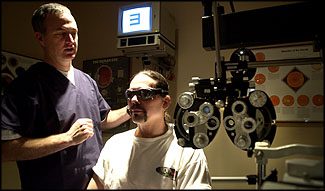

But what about younger, healthier patients? How often should they be dilated? To answer these questions, we’ve enlisted the help of a few leaders in optometric retina care for their insights.Īs our patients get older, their risk for eye diseases increases, which requires more frequent dilated exams. So, how exactly have these technologies changed the way we evaluate our patients? Is it time to get rid of our ophthalmoscopes? How has retinal imaging changed the way we look at the fundus? And, what techniques and technologies must we incorporate into our practices to appropriately manage our patients? How we understand retinal changes, and ultimately manage our patients, is rapidly evolving.

Advanced retinal imaging technologies, coupled with increased understanding of macular disorders and the importance of the optometric role in detection, have provided us with real-time, quantitative and qualitative analysis of pathology. Unusual red eye high blood pressure related eye problems diabetes mellitus related eye problems HIV or AIDS patients who can have eye problem in future need to consult an ophthalmologist as soon as possible to save their sight.The management of posterior segment diseases has changed dramatically over the past several decades. Loss of peripheral (side) vision misaligned eyes new floaters (black "strings" or specks in the vision) and/or flashes of light pain in the eye thyroid disease-related eye problems (Graves' disease) Patients having eye problems like bulging of one or both eyes dark curtain or veil that blocks vision decreased vision, even if temporary ĭistorted vision double vision excess tearing eyelid abnormalities family history of eye disease halos (colored circles around lights) injury to the eye He/she is medically trained to deliver total eye care: primary, secondary and tertiary (i.e., vision services, contact lenses, eye examinations, medical eye care and surgical eye care), diagnose general diseases of the body and treat ocular manifestations of systemic diseases. Ophthalmologists is a physician who specializes in eye and vision care.


 0 kommentar(er)
0 kommentar(er)
